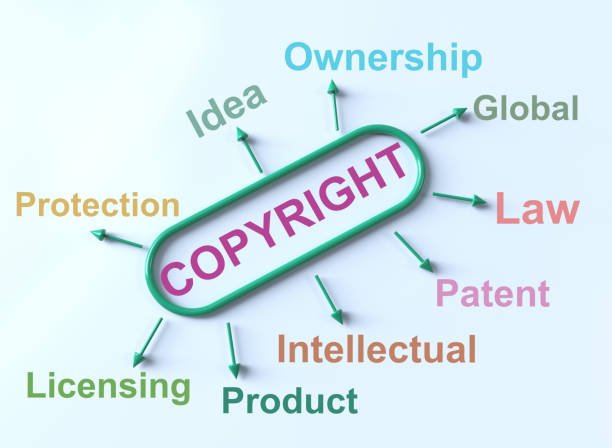
As the world becomes more digitalized, having a good understanding of copyright laws for quotes and sayings has become a critical necessity for content creators, writers, and everyday internet users.
Copyright law is a complex legal framework that aims to protect intellectual property and ensure creators receive recognition and compensation for their work. But where does this leave short phrases, quotes, or sayings?
This article will give us the explanation of what copyright law is, what it excludes, and how these rules apply to various contexts, including internet posting, comic books, and books.
What Is Copyright Law?
To understand the copyright laws for quotes and sayings, we must first have an insight of what copyright law is. In essence, copyright law grants creators of original works exclusive rights to use, reproduce, and distribute their work for a certain period.
This applies to literary works, music, art, and even software. However, copyright law does not protect every expression or idea. A crucial distinction when dealing with quotes and sayings. Under U.S. copyright law, an original work must meet two criteria to qualify for protection:
- Originality: The work must be independently created and possess at least some degree of creativity.
- Fixation: The work must be fixed in a tangible medium of expression, such as written text, recorded audio, or digital format.
These criteria establish the foundation of copyright law but leave some gray areas when it comes to short expressions.
For more details on copyright registration, check the Literary Works: Registration page, which provides comprehensive guidance for authors.
Are Quotes and Sayings Protected by Copyright?

The answer to whether quotes and sayings are protected by copyright lies in their length and originality. Generally, short phrases, slogans, or sayings are considered too insubstantial to qualify for copyright protection. The U.S. Copyright Office explicitly states that “short phrases or expressions” are not copyrightable because they lack the originality and creativity required.
For instance:
- Quotes from Literary Works: Quotes taken from books or other copyrighted materials are protected by copyright. However, their use might fall under “fair use,” depending on how and why they are used. To learn more about how book formatting plays a role in originality, check Art Book Layout Image Across from Text.
- Common Sayings: Popular sayings like “What goes around comes around” are not eligible for copyright protection because they are considered common knowledge.
That said, some sayings may be trademarked. This is especially true for phrases used in marketing or branding. For example, “Just Do It” by Nike is protected as a trademark, not as a copyright.
Copyright Law and Internet Posting
When sharing quotes or sayings online, it is essential to consider copyright laws for internet posting. Social media platforms, blogs, and other online mediums often feature excerpts from books, speeches, or other works. To stay on the right side of copyright law:
- Attribute Properly: Always credit the original creator when sharing a copyrighted quote.
- Use Sparingly: Avoid reproducing large portions of a work, as this could violate copyright law.
- Understand Fair Use: Under U.S. copyright law, the “fair use” doctrine allows limited use of copyrighted materials without permission for purposes like criticism, commentary, education, or research.
Proper attribution and adherence to fair use guidelines can protect you from legal trouble while ensuring respect for the original creator’s intellectual property. To ensure your postings comply with copyright standards, explore How Many Pages is a Book by ISBN for insights into publishing requirements.
How Do You Copyright a Book?
If you are an author who wants to protect your work, having a good understanding of how to copyright a book is essential. To obtain copyright protection in the U.S., you do not need to register your work formally—copyright protection is automatic upon creation.
However, registering your book with the U.S. Copyright Office provides additional benefits, such as the ability to file a lawsuit for infringement and the establishment of a public record.
Here are the steps to copyright a book:
- Prepare Your Work: Ensure the manuscript is complete and saved in a tangible format.
- Visit the Copyright Office Website: Register your work through the official portal for Literary Works: Registration.
- Pay the Fee: The registration fee varies based on the type of work.
- Submit Your Manuscript: Upload a digital copy or mail a physical copy.
Quotes and Sayings in Comic Books
The intersection of copyright law and comic books raises interesting questions about quotes and sayings. Comic books often feature iconic one-liners, catchphrases, and slogans. While these elements add flavor to the characters and stories, they may or may not qualify for copyright protection.
Consider this:
- Character Catchphrases: A character’s repeated phrase, such as “I’m the best at what I do” from Wolverine in Marvel comics, could be copyrighted as part of the larger work but not as an isolated phrase.
- Public Domain: Generic sayings or phrases in comic books that lack originality fall into the public domain and are not protected.
For comic book creators, protecting unique elements of their work through copyright registration or trademarks can safeguard their intellectual property. Learning about Comic Book Publishers and their practices may help navigate these nuances. For tips on enhancing comic book quality, check How to Calibrate Comic Book Press.
How Can You Find Out If Something Is Copyrighted?
Determining whether a quote or saying is copyrighted can be tricky. Here are some quick tips:
- Search Copyright Records: Use tools like the U.S. Copyright Office database to check if a work is registered.
- Consult Public Domain Resources: Many works published before 1923 are in the public domain.
- Contact the Creator: If you’re unsure, reach out to the copyright owner for clarification or permission.
For a “quick way,” ensure the material is thoroughly researched and evaluated for originality. Using tools such as copyright databases or consulting experts can save time and protect you legally.
How Do I Get a Copyright for My Work?
If you’ve created something unique, whether it’s a book, a comic, or an article, obtaining copyright protection is simple. As previously mentioned, copyright is automatic, but registration ensures stronger protection.
In addition to following the steps outlined earlier, creators should also:
- Keep Records: Maintain drafts, notes, or sketches that demonstrate the work’s development.
- Consult Professionals: If you’re unsure about your rights, copyright attorneys can provide valuable guidance.
Best Practices for Using Quotes and Sayings
To use quotes and sayings without infringing on copyright laws, follow these best practices:
- Verify Permissions: Seek permission from the copyright owner if needed.
- Cite Your Sources: Proper attribution can protect you from accusations of plagiarism.
- Consider Fair Use: Evaluate whether your use qualifies as fair use.
- Understand Licensing: Some quotes or works may be available under Creative Commons or other licenses that allow reuse.
Conclusion
Knowing copyright laws for quotes and sayings is essential for navigating the complex world of intellectual property. Whether you are sharing a famous quote on social media, writing a book, or creating a comic, staying informed about copyright rules can help you respect others’ rights while protecting your own. By adhering to best practices and utilizing tools like copyright registration and public domain resources, you can avoid legal complications and focus on your creative endeavors.
FAQs
Q: Are all quotes copyrighted?
A: Not all quotes are copyrighted. Short phrases or common sayings usually aren’t protected, but longer excerpts from literary works or speeches may be.
Q: What is the easiest way to check if something is copyrighted?
A: The easiest way is to search the U.S. Copyright Office database or consult public domain resources.
Q: Do I need to register my book to protect it?
A: No, copyright protection is automatic upon creation, but registration offers additional legal benefits.
Q: Can I use quotes from books in my blog?
A: Yes, as long as you adhere to fair use guidelines and properly attribute the source.

Leave a Reply
You must be logged in to post a comment.